Complete Guide: Summer Car Care Tips

Summer has arrived, and with it comes scorching heat! Faced with blazing hot temperatures, cars are prone to tire blowouts, air conditioning malfunctions, vehicle fires, and other issues.
How can you prevent your beloved car from breaking down and ensure a smooth and safe summer drive? Check out this comprehensive guide to summer car maintenance!
1. Sun Protection for Your Car Paint
During summer, it's essential to avoid prolonged exposure of your vehicle to direct sunlight. Extended exposure can cause molecular changes in both the interior and exterior materials of the car, leading to the release of unpleasant odors and accelerating aging of the car paint, dashboard, plastic parts, and rubber components. Some may even become deformed or brittle, ultimately resulting in functionality failure.
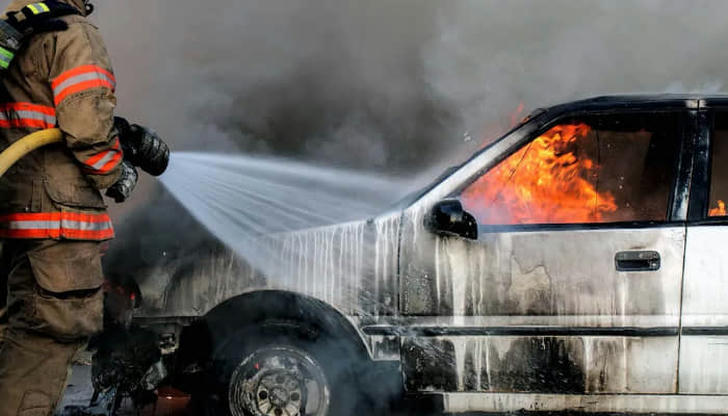
2. Preventing Vehicle Fires in High Temperatures
Summer is a peak season for vehicle fires. There are two main reasons for car fires: aging of car circuits or oil lines and storing flammable items in the vehicle. To prevent vehicle fires, consider the following:
• Avoid modifying car circuits in summer.
• Regularly inspect or replace in-car fire extinguishers.
• Refrain from storing flammable or explosive items such as perfumes, carbonated drinks, lighters, power banks, etc., inside the car.
• Park away from surfaces containing flammable materials like hay or paint.
• Apply explosion-proof film to car windows.
• Take breaks during long drives and park in shaded, well-ventilated areas. If possible, open the engine hood to facilitate cooling.
• Developing good driving habits is essential. Bad habits such as harsh acceleration, sudden turns, drifting on bends, and emergency braking should be avoided as much as possible.
While driving, pay attention to the engine temperature gauge. If the needle approaches the high-temperature zone, promptly pull over without turning off the engine. Allow the engine to idle to gradually reduce the temperature, and open the engine hood for ventilation. Once the temperature lowers, turn off the engine. If conditions allow, you can slowly add coolant in multiple stages to prevent the cylinder head from cracking due to sudden cooling. Be cautious not to wet the circuits.
Car owners should cultivate the habit of regularly cleaning the radiator fins during summer. This enhances engine cooling efficiency and reduces the occurrence of engine overheating. Additionally, inspect and maintain the vehicle's cooling system, including the radiator, thermostat, water pump, fan, etc. During maintenance, ensure the fan belt remains free of oil to prevent slippage.
If a vehicle fire occurs, the owner should be familiar with emergency procedures. After a car fire breaks out, the first step is to immediately cut off the fuel supply or remove any flammable items stored in the car, turn off the ignition switch, and promptly attempt to exit the driver's cabin. Hold the fire extinguisher and promptly extinguish the fire.
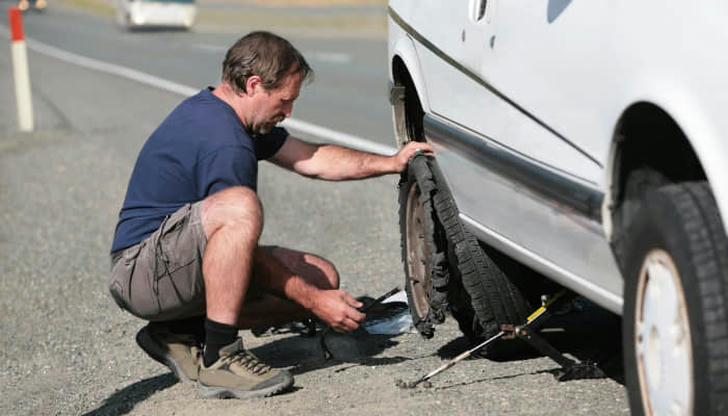
3. Pay Attention to Tire Maintenance to Avoid Tire Blowouts
Summer weather is unpredictable, and tires not only have to navigate hot road surfaces but also extreme weather conditions such as heavy rain and hail, making them prone to malfunction. Due to the high temperatures in summer, tire heat dissipation is slow, causing the tire pressure to increase with rising temperatures, increasing the likelihood of tire blowouts. Additionally, speeding, overloading, or emergency braking can easily trigger tire blowouts.
To prevent such situations, the following precautions should be taken:
• Regularly check the temperature and pressure of the tires. Adjust tire pressure appropriately or switch to filling the tires with helium, a physically more stable gas that is less prone to expansion.
• If the tire temperature is too high, avoid pouring cold water to reduce the temperature, as this can cause cracks due to differential contraction of different parts of the tire.
• Conduct regular inspections for cracks, aging, wear, bulging, etc., and repair or replace tires promptly.
• When parking, try to park the car in a shaded area to avoid prolonged exposure of the tire rubber to sunlight and UV rays, which can increase the chances of tire aging and blowouts.
• If the vehicle experiences pulling or abnormal steering, promptly perform a four-wheel alignment to ensure even tire force distribution and prevent excessive wear.
• Ensure that all four wheels are on the same level ground when parking; otherwise, the tire at the lowest point will be subjected to excessive pressure, leading to deformation of the internal steel wires and tire damage.
• If the car is 3-4 years old or has traveled 50,000 kilometers, consider replacing the tires promptly.
4. Check Engine Lubricating Oil
Engine lubricating oil plays a crucial role in heat dissipation. The engine operates at high temperatures for extended periods, making it more susceptible to issues such as carbon deposits and paint film due to high-temperature oxidation, accelerating engine aging. Choose high-quality lubricating oil to ensure your vehicle safely navigates through the scorching summer!
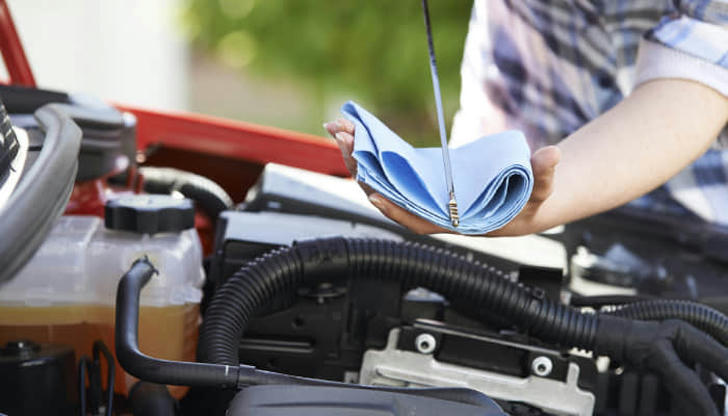
5. Use Antifreeze Even in Summer
Antifreeze is the primary working medium in the engine cooling system of a vehicle. It offers excellent performance in preventing freezing in winter, boiling in summer, as well as corrosion and rust prevention. Using antifreeze helps maintain the engine at an appropriate operating temperature, preventing engine breakdown due to high temperatures and even serious damage.
Newly purchased cars do not require replacement for the first two years, but antifreeze should be replaced regularly once it exceeds its warranty period.
In summer, high temperatures increase the consumption of coolant. Therefore, it is essential to regularly check for coolant shortages and monitor coolant temperature. If there is a shortage, replenish it promptly.
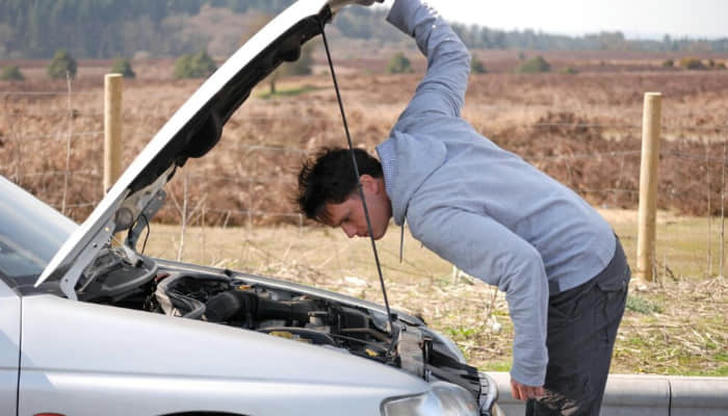
6. Beware of Engine Hydrolock and Engine Stalling in Rainy Weather
During the summer, rainfall increases, and heavy rainstorms are common occurrences. Drivers should exercise caution when driving in rainy conditions:
• To ensure rapid drainage of water during rainfall, vehicles are designed with practical drainage holes, such as sunroof drainage holes, fuel tank drainage holes, door drainage holes, and engine compartment drainage holes. If these holes become blocked, water leakage and seepage may occur inside the vehicle. This can damage interior panels and, in severe cases, lead to mechanical component and engine circuit system damage. Therefore, regular inspection and cleaning are necessary.
• If the vehicle stalls due to water ingress during fording, immediately turn off the ignition switch and do not attempt to restart the engine to prevent engine hydrolock caused by forced starting after water ingress.
• When encountering pedestrians in the rain, reduce speed, honk the horn, and patiently give way. If necessary, choose a safe place to stop.
• After the rain, promptly wash the car. Rainwater, combined with sunlight exposure, can corrode and oxidize the paint surface, reducing the lifespan of the car's paint.
Many car owners believe that washing their cars under the scorching sun will dry the car quickly. However, this is a misconception. Washing cars under intense sunlight can create a lens effect with water droplets, causing localized high temperatures on the paint surface. Over time, this can cause the paint to lose its luster and shorten its lifespan.
During summer car washes, it's advisable to perform a series of maintenance procedures, including cleaning, polishing, waxing, and sealing glaze, to protect the paintwork.
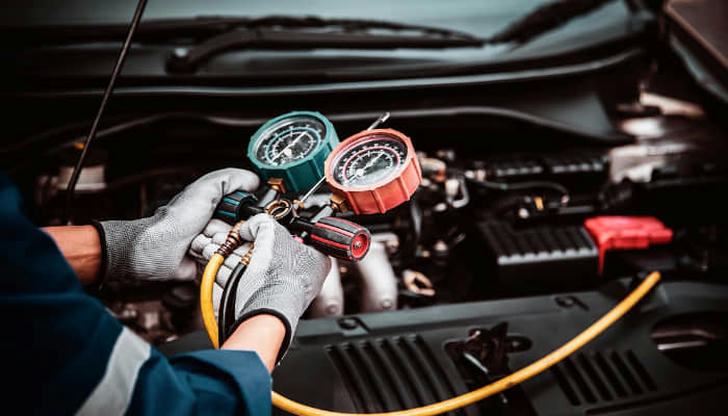
7. Air Conditioner Maintenance
During the summer, the interior temperature of the car can be relatively high. It's not advisable to immediately turn on the air conditioning when the car starts. Instead, open all windows for 3-5 minutes with the air circulation set to external, allowing the hot air inside the car to dissipate before turning on the air conditioning for better cooling efficiency.
Additionally, during the summer, high temperatures not only affect engine cooling but also impact the effectiveness of air conditioning, leading to issues such as decreased vehicle power, difficulty starting, and unpleasant odors inside the car. To prevent such situations from occurring, car owners should:
• Regularly clean the air conditioning system (including the condenser, which directly affects the cooling effect), and replace the air conditioning filter to ensure effective filtration, inhibiting the entry of foreign particles and the breeding of bacteria.
• Frequently ventilate by opening windows and regularly clean the car interior to maintain a clean and tidy environment. During cleaning, disinfectants can be used, followed by thorough ventilation for 5-6 minutes and wiping off any residual disinfectant with clean water and cloth.
• If the engine remains under high load for an extended period, temporarily turn off the air conditioning.
• Prolonged use of the car's air conditioning system can lead to excessive pressure on the condenser, causing damage to the refrigeration system. Therefore, if the interior temperature has already cooled down, consider turning off the car's air conditioning for a while.
• A few minutes before parking, turn off the air conditioning to allow the temperature inside the air conditioning ducts to rise, equalizing the temperature difference with the external environment, thereby maintaining relative dryness in the air conditioning system.
Extended use of air conditioning can easily lead to malfunctions. Many car owners may find no difference in comfort with the air conditioning on or off. At this point, it's crucial to check whether the air conditioning system lacks fluorine. In general, insufficient refrigerant is one of the reasons for air conditioning failure. Secondly, check for leaks. There is usually a glass observation hole on the desiccant bottle, and the flow of bubbles can preliminarily determine its working condition.
8. Car Radiator
After spring's sandstorms and pollen, and with the increase of summer insects, the front end of the car radiator is prone to being covered by pollen and insect remains. This can lead to poor ventilation, rising water temperatures, and compromised engine cooling. Consequently, the engine's performance decreases, fuel injectors may become blocked, and ultimately, the engine may stall. At this point, it's advisable to install a mesh guard to prevent insects, sand, pollen, and other debris from infiltrating.
9. Check Out Battery
Electrodes and internal components of car batteries are prone to oxidation in high temperatures, leading to battery discharge. Therefore, it's essential to regularly inspect and promptly replace the battery if any issues are detected to avoid compromising driving safety.
10. Timely Engine Compartment Cleaning
It's crucial to regularly clean the engine compartment and inspect the wiring harness to prevent the accumulation of foreign objects. In hot weather, prolonged operation and exposure to intense sunlight can increase the risk of spontaneous combustion.
Conclusion
When driving, safety always comes first! To ensure both the safety of your driving experience and your personal well-being, it's crucial to remember these summer car usage and maintenance tips and conduct regular inspections.
